Explanation of my 10 Ballon d'Or 1970
This is my ranking, my opinion on the Ballon d'Or of the year 1970. This ranking is based on the calendar year, not the season. What counts for this ranking is the player's regularity over the calendar year, the number of matches played, the ability to raise his level in big games, statistics (goals, assists, clean sheets, goals conceded, etc.) and trophies won (collective and individual).
#10 Carlos Alberto
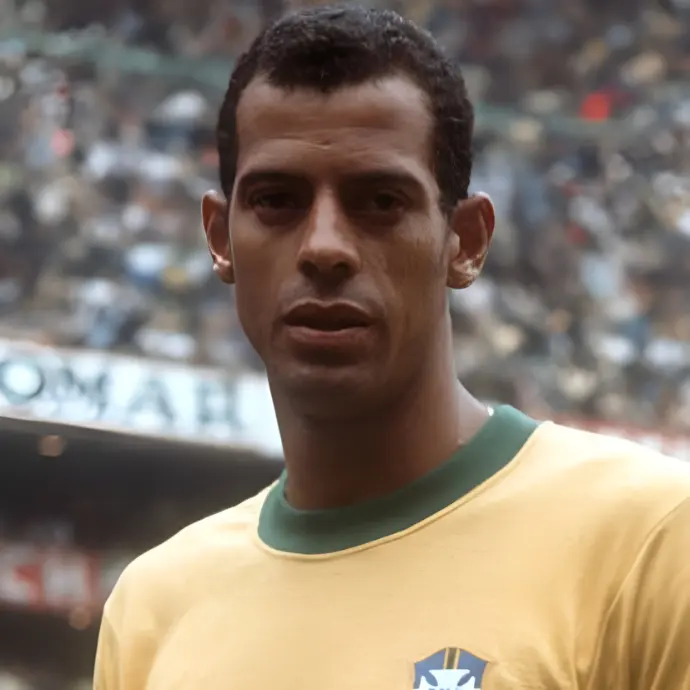
- Age : 25/26 years old
- Club : Santos FC
- Statistics : 63 games, 7 goals, / assists
- Trophies : World Cup
- Individual Awards : World Cup TOTT
In the calendar year 1970, Carlos Alberto Torres etched his name into footballing immortality as the charismatic captain of Brazil’s legendary World Cup-winning team. Leading a squad brimming with talent—including Pelé, Jairzinho, and Tostão—Carlos Alberto was the defensive anchor and spiritual leader of a side often hailed as the greatest of all time. His crowning moment came in the final against Italy, where he scored one of the most iconic goals in World Cup history: a thunderous finish at the end of a sweeping team move, symbolizing the beauty and cohesion of Brazil’s “samba football.” Beyond his attacking flair, he was a modern right-back—elegant on the ball, tactically astute, and fearless in defense. At club level, he was a key figure for Santos FC, where he played alongside Pelé and helped shape the team’s domestic and continental dominance. In 1970, Carlos Alberto wasn’t just a defender—he was a symbol of leadership, style, and the joyful artistry that defined Brazilian football’s golden age.
#9 Wolfgang Overath
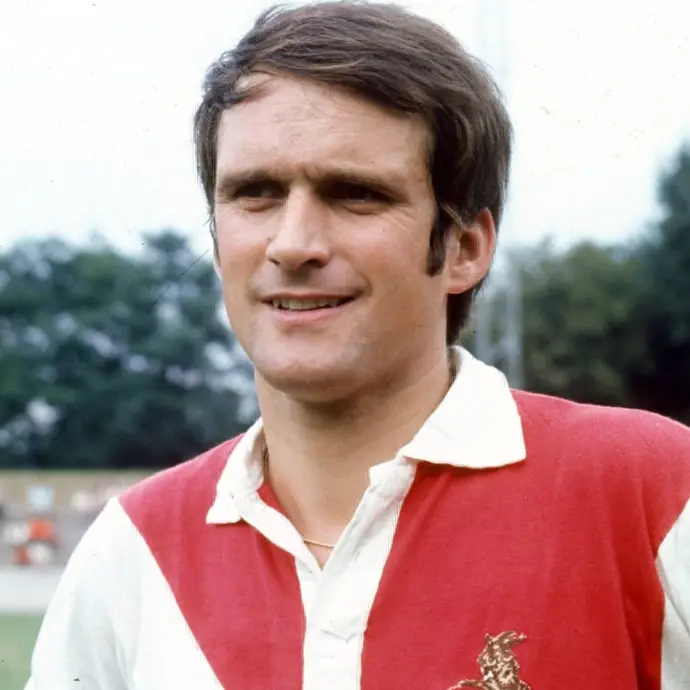
- Age : 26/27 years old
- Club : FC Köln
- Statistics : 48 games, 9 goals, 11 assists
- Trophies : Finalist German Cup
- Individual Awards : Bundesliga TOTY
In the calendar year 1970, Wolfgang Overath stood out as one of the finest midfielders in world football, showcasing his elegance, intelligence, and technical mastery on the grandest stage. As a central figure in West Germany’s national team, he played a pivotal role in their journey to a third-place finish at the FIFA World Cup in Mexico. Overath was lauded as the best midfielder of the tournament, outperforming contemporaries like Sandro Mazzola and Tostão, and even scored the decisive goal in the third-place match against Uruguay. His performances earned him widespread acclaim, with one Brazilian newspaper famously describing him as possessing “the grace of a ballet dancer, the endurance of a cosmonaut, and the intelligence of Einstein”. At club level, he continued to be the heartbeat of 1. FC Köln, leading them to the DFB-Pokal final. Overath’s 1970 was a year of both individual brilliance and team leadership, reinforcing his reputation as “the number 10 par excellence” and a symbol of loyalty and class in German football.
#8 Gérson
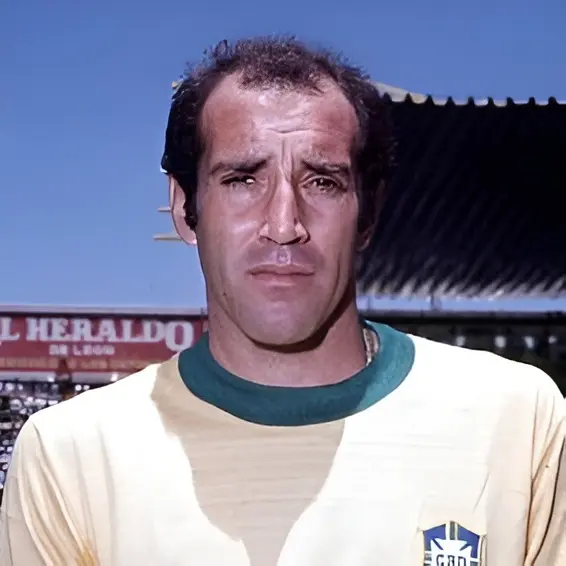
- Age : 29 years old
- Club : São Paulo FC
- Statistics : 37 games, 4 goals, / assists
- Trophies : World Cup, São Paulo Championship
- Individual Awards : World Cup TOTT
In the calendar year 1970, Gérson de Oliveira Nunes—simply known as Gérson—was the cerebral architect of Brazil’s World Cup-winning team, orchestrating play from midfield with unmatched vision and precision. Often referred to as the best passer of the tournament, Gérson was the deep-lying playmaker who made Brazil’s attacking machine hum, linking defense and attack with his pinpoint left-footed distribution. His crowning moment came in the World Cup final against Italy, where he scored a crucial goal and dictated the tempo of the match, helping Brazil secure a 4–1 victory and their third world title. At club level, he starred for São Paulo FC, winning the Campeonato Paulista in 1970. Gérson’s style—marked by intelligence, control, and a thunderous shot—prefigured the “regista” role later popularized in European football. In 1970, he wasn’t just a midfield general; he was the brain of one of the greatest teams in football history.
#7 Jairzinho
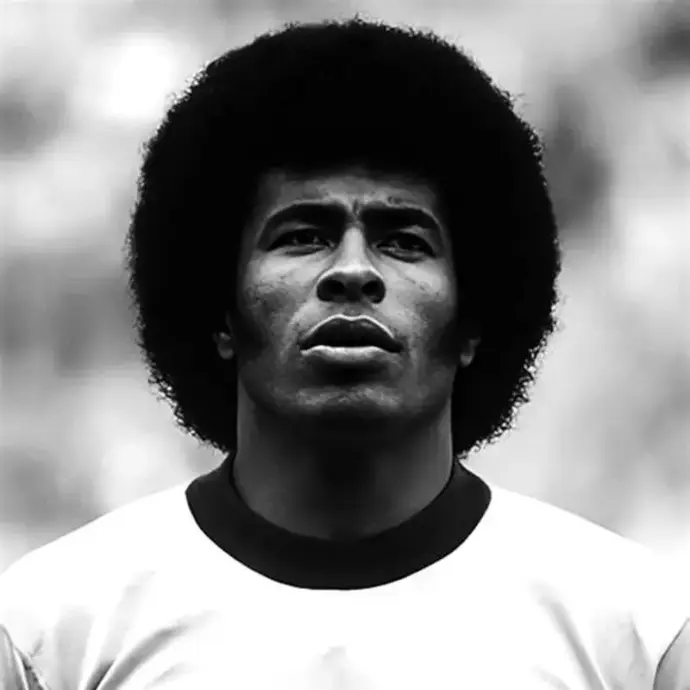
- Age : 25 years old
- Club : Botafogo
- Statistics : 33 games, 22 goals, / assists
- Trophies : World Cup
- Individual Awards : World Cup TOTT
In the calendar year 1970, Jairzinho exploded onto the global stage as one of the standout stars of the FIFA World Cup in Mexico, earning the nickname “Furacão da Copa de 70”—the Hurricane of the 1970 World Cup. Playing as Brazil’s right winger, he achieved the extraordinary feat of scoring in every match of the tournament, netting seven goals in six games, including a crucial strike in the final against Italy. His relentless pace, powerful dribbling, and clinical finishing made him a nightmare for defenders and a perfect complement to Pelé’s genius. Jairzinho’s performances were instrumental in Brazil’s triumphant campaign, which culminated in a 4–1 victory in the final and their third World Cup title. At club level, he continued to shine for Botafogo, where he had inherited the legendary number 7 shirt from Garrincha. In 1970, Jairzinho wasn’t just a winger—he was a force of nature, a symbol of Brazil’s attacking flair, and one of the most electrifying players the world had ever seen.
#6 Luigi Riva
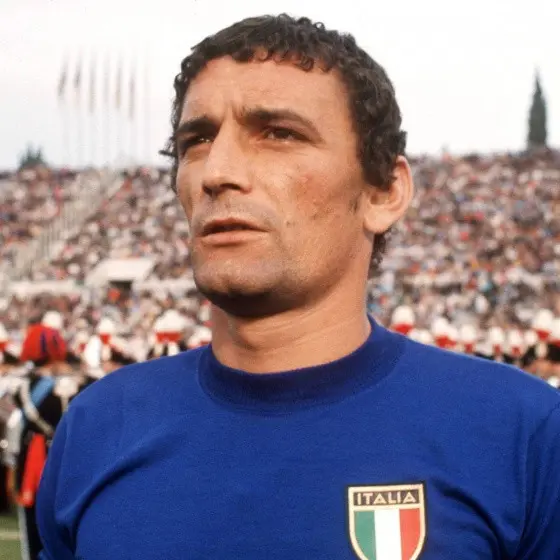
- Age : 25/26 years old
- Club : Cagliari
- Statistics : 37 games, 33 goals, / assists
- Trophies : Finalist World Cup, Serie A
- Individual Awards : Serie A TOTY, Serie A Golden Shoe (21 goals)
In the calendar year 1970, Luigi Riva—nicknamed “Rombo di Tuono” (Roar of Thunder)—reached the pinnacle of his career, becoming a national hero and a symbol of Sardinian pride. At club level, he led Cagliari to an extraordinary and historic Serie A title, the first and only Scudetto in the club’s history. Riva was the league’s top scorer with 21 goals, combining raw power, a lethal left foot, and aerial dominance to terrorize defenses across Italy. His loyalty to Cagliari, despite offers from giants like Juventus, only deepened his legendary status. On the international stage, Riva was a key figure in Italy’s run to the 1970 World Cup final in Mexico. He scored crucial goals, including one in the unforgettable 4–3 semifinal victory over West Germany—dubbed the “Match of the Century.” Though Italy fell to Brazil in the final, Riva’s performances earned him the Bronze Ball in the Ballon d’Or voting that year. In 1970, Luigi Riva wasn’t just Italy’s most feared striker—he was its beating heart.
#5 Teófilo Cubillas
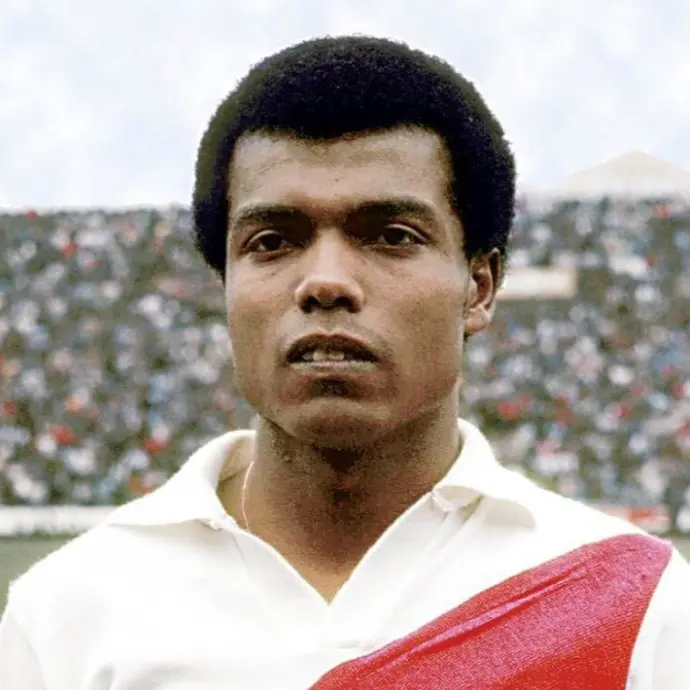
- Age : 20/21 years old
- Club : Alianza Lima
- Statistics : 34 games, 30 goals, / assists
- Trophies : /
- Individual Awards : World Cup TOTT, World Cup YOTY, Peruvian League POTY, Peruvian League TOTY, Peruvian League Golden Shoe (22 goals)
In the calendar year 1970, Teófilo Cubillas emerged as one of the brightest young stars in world football, dazzling fans and pundits alike with his flair, vision, and goal-scoring prowess. At just 21 years old, he led Alianza Lima to domestic prominence, finishing as the top scorer in the Peruvian league with 22 goals. But it was on the global stage at the FIFA World Cup in Mexico where Cubillas truly announced himself. Playing a pivotal role in Peru’s exciting run to the quarterfinals, he scored five goals—including a stunning solo effort against Bulgaria—and was named the tournament’s Best Young Player. His performances, marked by technical brilliance and an uncanny sense of timing, earned him comparisons to Pelé, who famously called Cubillas his successor2. That year, he also helped form the legendary “Dupla de Oro” with Hugo Sotil, a partnership that thrilled fans and even defeated European giants like Bayern Munich and Benfica in friendlies. In 1970, Cubillas wasn’t just a rising star—he was the embodiment of Peru’s golden generation and a new symbol of South American footballing artistry.
#4 Johan Cruyff
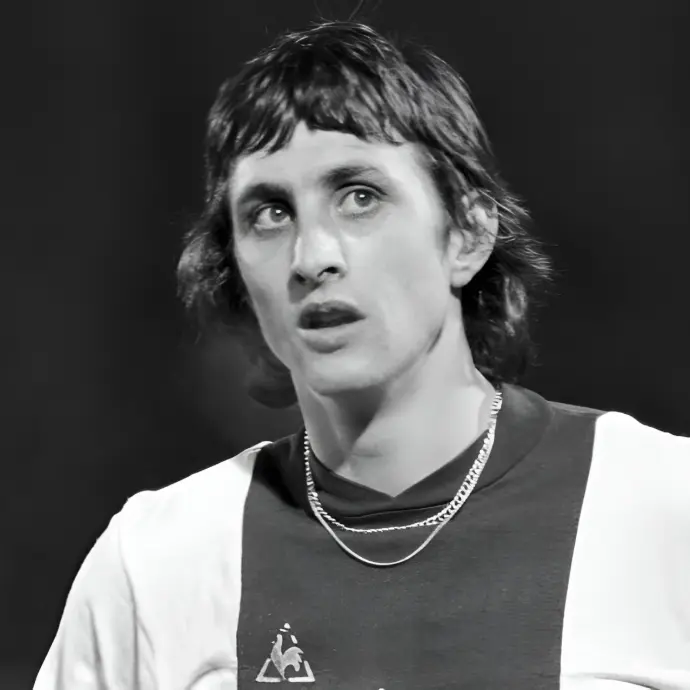
- Age : 22/23 years old
- Club : Ajax Amsterdam
- Statistics : 35 games, 27 goals, 23 assists
- Trophies : Eredivisie, Dutch Cup
- Individual Awards : Eredivisie POTY, Eredivisie TOTY
In the calendar year 1970, Johan Cruyff was already a footballing visionary, dazzling fans with his intelligence, agility, and technical brilliance. Although he missed the World Cup in Mexico due to the Netherlands not qualifying, Cruyff’s performances at club level with Ajax were nothing short of spectacular. He led Ajax to a domestic double, winning both the Eredivisie and the KNVB Cup, and was instrumental in their deep run in the European Cup, where they reached the quarterfinals. Cruyff’s influence on the pitch was profound—he was the creative nucleus of Rinus Michels’ “Total Football” system, constantly interchanging positions, dictating tempo, and unlocking defenses with his incisive passing and dribbling. In 1970, he scored 27 goals in 35 matches, a remarkable tally for a playmaker. That year marked the beginning of Cruyff’s transformation from a prodigious talent into a global icon, laying the groundwork for the dominance Ajax and the Dutch national team would soon unleash.
#3 Pelé
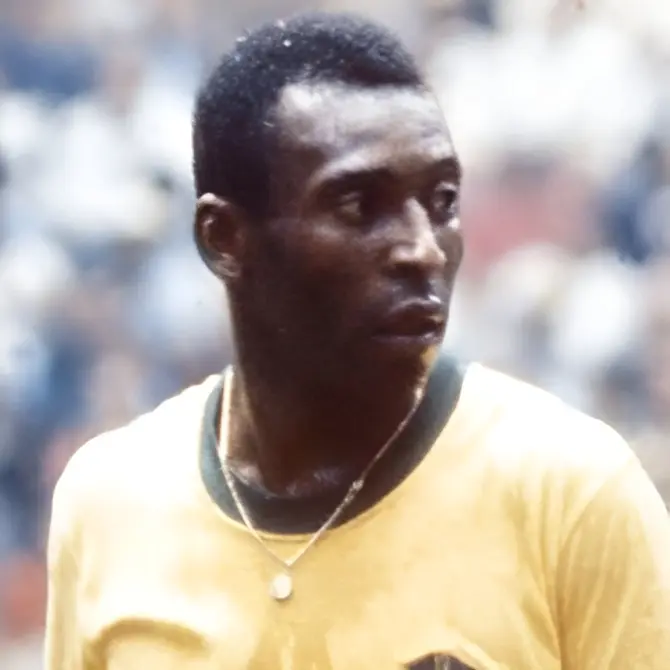
- Age : 29/30 years old
- Club : Santos FC
- Statistics : 44 games, 19 goals, 20 assists
- Trophies : World Cup
- Individual Awards : World Cup POTT, World Cup TOTT
In the calendar year 1970, Pelé reaffirmed his status as the greatest footballer of his generation—and perhaps of all time—by leading Brazil to a historic third World Cup title in Mexico. At 29 years old, he was the undisputed leader of a Seleção side often hailed as the most beautiful team ever assembled. Pelé scored four goals in the tournament, including a towering header in the final against Italy, and was directly involved in 14 of Brazil’s 19 goals, showcasing his unmatched vision, creativity, and finishing. His assist to Carlos Alberto for the fourth goal in the final remains one of the most iconic moments in football history. Beyond the World Cup, Pelé continued to dominate with Santos FC, contributing goals and brilliance in domestic and international friendlies, as the club toured globally. His influence was so profound that the Brazilian government had already declared him a “national treasure” to prevent his transfer abroad. In 1970, Pelé wasn’t just a footballer—he was a global icon, a cultural ambassador, and the living embodiment of the beautiful game.
#2 Franz Beckenbauer
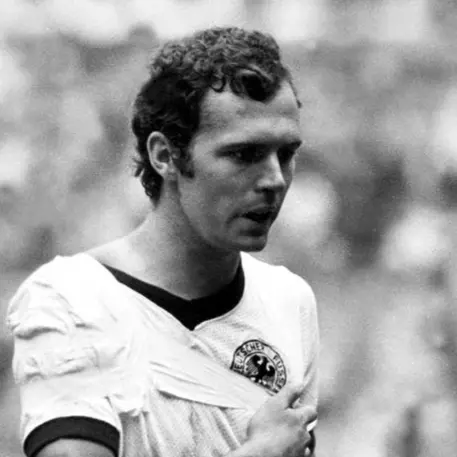
- Age : 25/26 years old
- Club : Bayern Munich
- Statistics : 58 games, 6 goals, 4 assists
- Trophies : Bundesliga Vice-Champion
- Individual Awards : World Cup TOTT, Bundesliga TOTY
In the calendar year 1970, Franz Beckenbauer stood at the forefront of world football as both a tactical innovator and a commanding presence on the pitch. As captain of West Germany, he led his nation to the final of the FIFA World Cup in Mexico, delivering a series of masterful performances that showcased his elegance, composure, and versatility. Most famously, he played the semifinal against Italy—dubbed the “Game of the Century”—with a dislocated shoulder, his arm in a sling, embodying resilience and leadership. Though West Germany fell to Brazil in the final, Beckenbauer’s influence was undeniable. At club level, he continued to shine for Bayern Munich, guiding them to a strong Bundesliga campaign and asserting their growing dominance in German football.
Winner : Gerd Müller
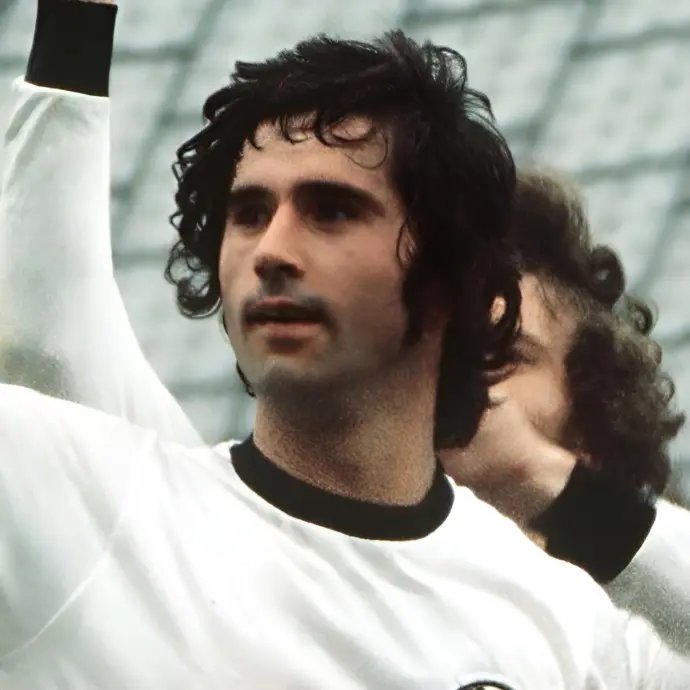
- Age : 24/25 years old
- Club : Bayern Munich
- Statistics : 58 games, 56 goals, 15 assists
- Trophies : Bundesliga Vice-Champion
- Individual Awards : World Cup TOTT, World Cup Golden Shoe (10 goals), Bundesliga TOTY, Bundesliga Golden Shoe (38 goals)
In the calendar year 1970, Gerd Müller reached the zenith of his goal-scoring powers, delivering one of the most prolific and celebrated years in football history. Leading the line for both Bayern Munich and West Germany, Müller’s instinctive finishing and positional genius made him virtually unstoppable. At the FIFA World Cup in Mexico, he won the Golden Boot with 10 goals in just six matches, including back-to-back hat-tricks against Bulgaria and Peru, and a dramatic brace in the legendary 4–3 semifinal against Italy. Though West Germany finished third, Müller’s performances were unforgettable and cemented his status as the world’s most feared striker. At club level, he continued his dominance with Bayern Munich, finishing as the Bundesliga’s top scorer and helping the club secure a strong league campaign.